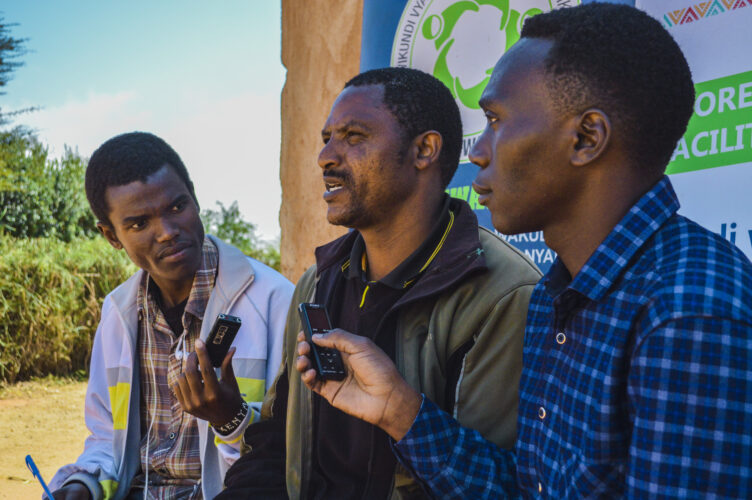As part of the YenKasa Africa radio initiative, we are thrilled to introduce a new feature every Wednesday, highlighting a single radio program. This week, we delve into the vital topic of managing weeds and pests in Tanzania. Discover valuable insights and expert advice by reading our feature and then dive deeper by listening to the recorded program on the YenKasa Africa website in Swahili. Don’t miss this opportunity to enhance your knowledge and empower your agricultural practices. Happy reading and listening!
In Tanzania, smallholder garlic farmers face many challenges, chief among them being the relentless battle against weeds and pests. However, amidst these challenges lie innovative solutions and invaluable insights from seasoned farmers and agricultural experts. A radio program broadcast by Habari Njema Radio 87.5 FM in Swahili sheds light on this critical topic, offering a platform for knowledge exchange and collaborative learning.
The radio program was implemented through the MVIWAMA producer Organization in Tanzania as part of the YenKasa Africa radio initiative.
During the program, Paulo Katuli, Marcela Desideri, and Romano Edward, esteemed garlic farmers, shared their wealth of practical knowledge. They emphasized the importance of proactive measures, highlighting key strategies such as farm preparation, timely planting, and proactive pesticide application. For these farmers, creating optimal conditions for garlic growth and preemptively addressing weed and pest issues were paramount in ensuring a successful harvest.
Moreover, agricultural officer Emmanuel Sungi offered invaluable insights into effective pest control strategies. Sungi stressed the significance of targeted pesticide application, advising farmers to apply pesticides during critical stages such as weeding to combat specific pests like leaf rust and onion thrips. Additionally, Sungi emphasized the importance of informed pesticide selection and dosage, ensuring maximum efficacy while minimizing environmental and health risks.
Furthermore, Sungi advocated for a comprehensive approach to pest management, encompassing various methods such as weeding, timely pesticide application, and fungicide usage for rust prevention. His recommendations on fertilizer usage also aimed at bolstering garlic growth and resilience against pests and diseases, underscoring the interconnectedness of agronomic practices in ensuring successful crop management.
The radio programme exemplifies the power of knowledge-sharing and collaborative learning within agricultural communities. By bridging the gap between seasoned farmers and agricultural experts, smallholder garlic farmers gain access to invaluable insights and practical strategies, ultimately leading to improved agricultural production and food security in Tanzania.
As smallholder farmers continue to navigate the challenges posed by weeds and pests, initiatives like the radio programme foster a culture of innovation and resilience within Tanzania’s agricultural landscape. Through collective efforts and shared expertise, farmers are empowered to overcome obstacles and thrive in pursuing sustainable agriculture.
Listen to the radio programme.
Access all the Tanzania Productions here:
You can access all other radio productions here:
YenKasa Africa Radio Initiative.

